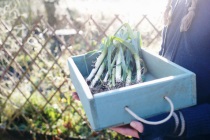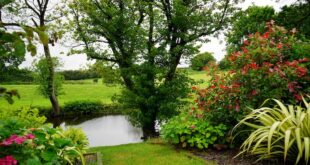If you haven't already got your winter vegetable seedlings in, be quick about it as their rate of growth will slow in sync with the reducing hours of sunlight. Right now, depending on how drought-stricken your area is, the elements are still kind enough to help them establish. The longer you leave planting now, the more likely it is your young seedlings will struggle.
If you live in an area with little or no frost, you can plant asparagus, beetroot, broad beans, cabbage, carrots, chives, hardier varieties of lettuce, onion, pak choy, peas, potatoes and rhubarb, shallots, spinach, spring onions in April/May.
Where Grow a Vegetable Garden?

Raised garden beds are best in areas that are preferably sheltered from too much wind. A layer of pea straw will help keep the roots of winter vegetables warm and thwart weeds. Winter vegetables and herbs can also be grown in pots, troughs and hanging baskets on warm, sheltered patios which saves trudging out in the mud to pick something fresh for dinner on a cold winter's day.
If you have a glasshouse (or a plastic one), you can plant: broccoli, hardy varieties of lettuce, radish, silver beet, spinach, and herbs such as parsley and coriander. Allow plenty of ventilation, and don't give them too much water. These crops will be much happier if you keep the vents wide open most of the time, but close them on frosty nights.
If you live in a frost-prone area, check with your local garden centre, but the general advice seems to be to plant nothing outdoors, cover the garden in manure to feed the soil over the winter and yield better crops next spring.










Join the Discussion
Type out your comment here:
You must be logged in to post a comment.